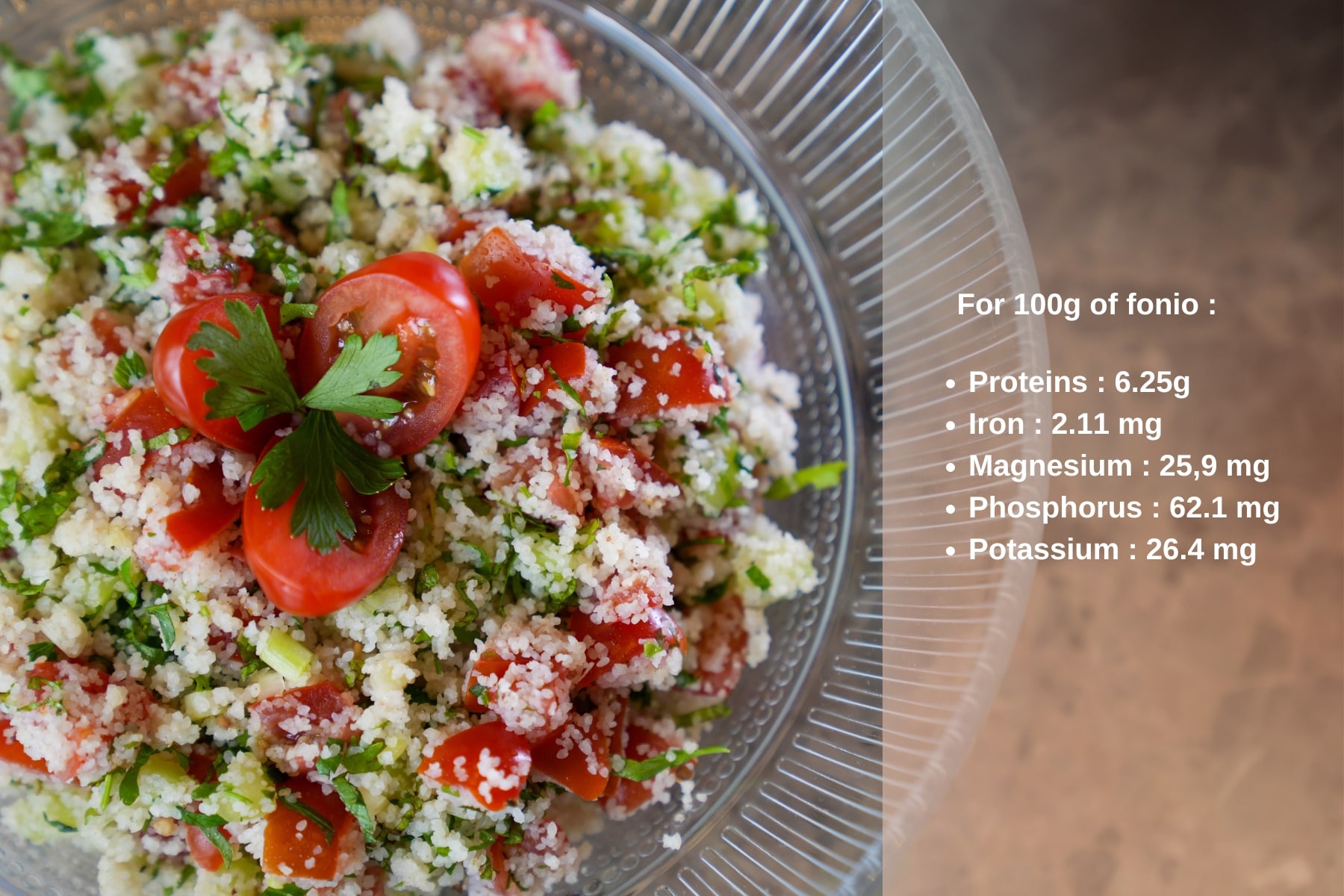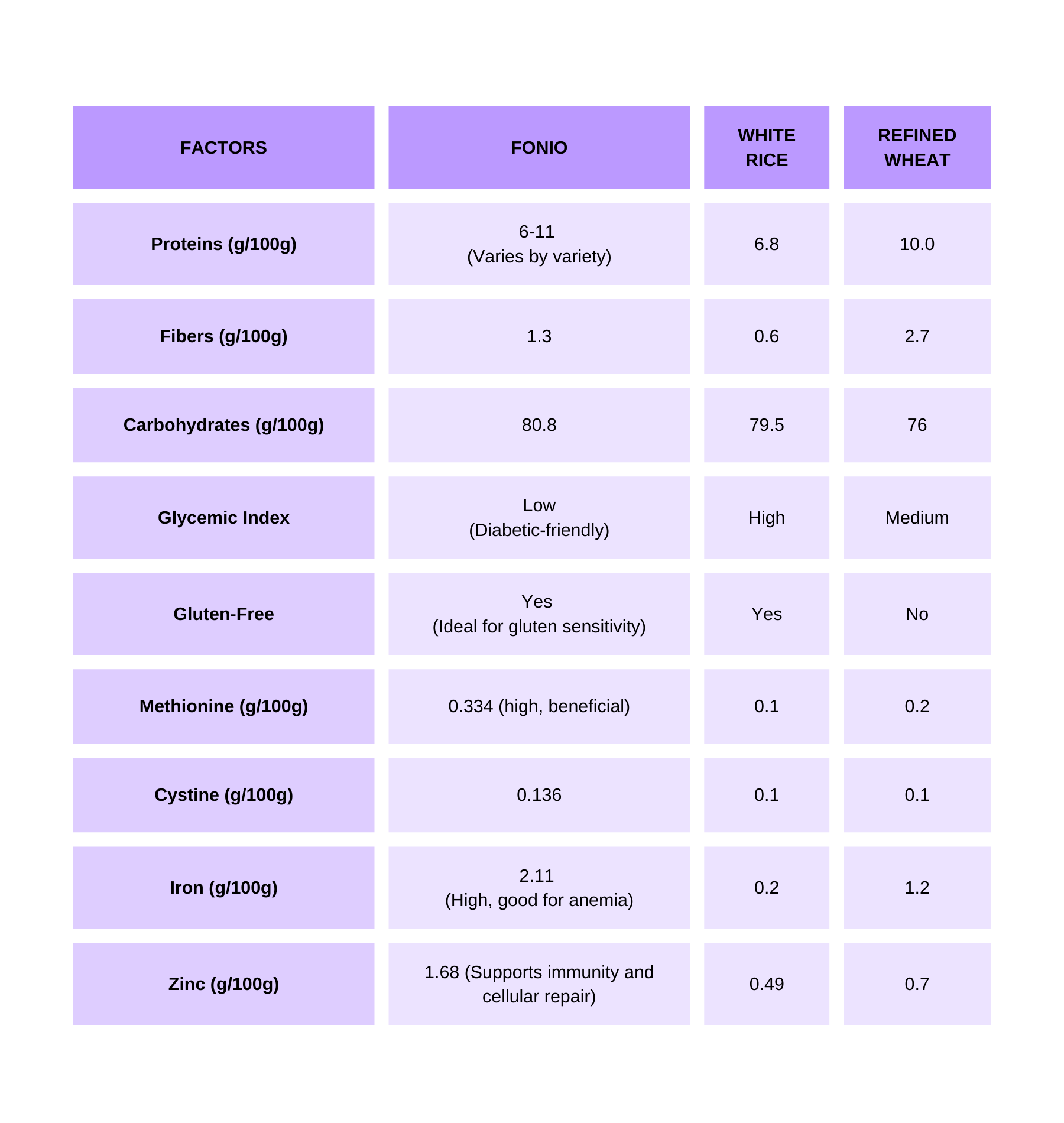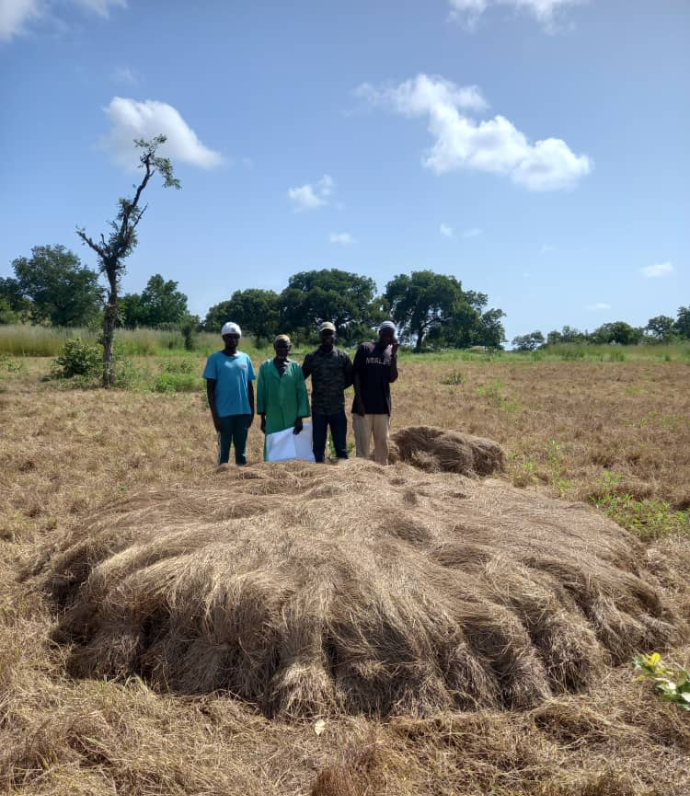

CAA & fonio
Fonio is a type of grain native to West Africa. Often considered 'the world's smallest grain' due to its small size (0.3 to 0.8 mm), similar to couscous, fonio has been cultivated and consumed for centuries in various West African countries, including Mali, Senegal, Guinea, Nigeria, and Burkina Faso.
Fonio has garnered attention in recent years as a nutritious and climate-resilient crop with the potential to contribute to food security and economic development in West Africa and beyond. It has also been promoted as a 'superfood' due to its nutritional profile.
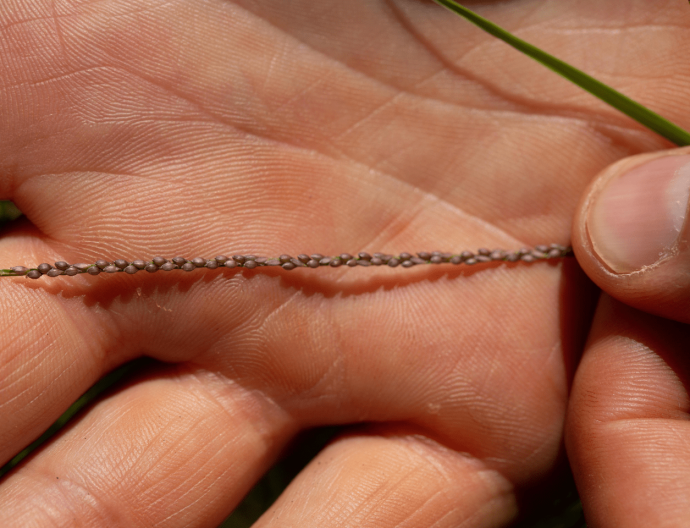

Nutritional Richness
This superfood, small but mighty, is valued for its nutritional richness and digestibility. Rich in essential amino acids, iron, calcium, and fiber, fonio also has a medium glycemic index, making it an excellent dietary option for everyone, including diabetics.
Rich in Healthy Energy
Rich in complex carbohydrates, fonio provides you with sustained energy throughout the day without the blood sugar spikes associated with simple carbohydrates.
Low Glycemic Index
Ideal for diabetics, fonio has a low glycemic index, which helps maintain stable blood sugar levels, keeping you feeling full and energized for longer.
Naturally Gluten-Free
Perfect for those who are gluten-sensitive or suffer from celiac disease, fonio is 100% gluten-free, allowing you to enjoy your meals without worry.
Rich in Essential Nutrients
Fonio is an excellent source of nutrients, including iron, zinc, and B vitamins, which are crucial for your energy, immune system, and overall well-being
Promoter of Digestive Health
With a good content of digestible fibers, fonio promotes healthy and regular digestion, helping to prevent constipation and maintain a healthy digestive system.
Discover our delicious fonio recipes with Findi.
Quick cooking :
Pre-cooked fonio has the advantage of a quick cooking time, which is highly advantageous in regions with limited kitchen facilities.
Culinary versatility :
Fonio can be used in a variety of dishes. It is often used as a base for porridge, side dishes, and even as a substitute for rice or other grains in recipes. It can also be ground into flour and used for baking.
Cultural heritage
Cultivated for millennia in West Africa, fonio is such an ancient grain that it is nicknamed 'the seed of the universe.' Its popularity once extended as far as Egypt, where seeds were found in the tombs of certain pharaohs.
Often associated with rituals and celebrations, fonio is an integral part of the food cultures and traditions of many communities in the region. Sometimes considered a good luck charm, sometimes cooked for prestigious guests, fonio carries a strong cultural heritage. The cultivation of fonio and its associated recipes are often passed down from generation to generation, strengthening cultural and social bonds within communities.

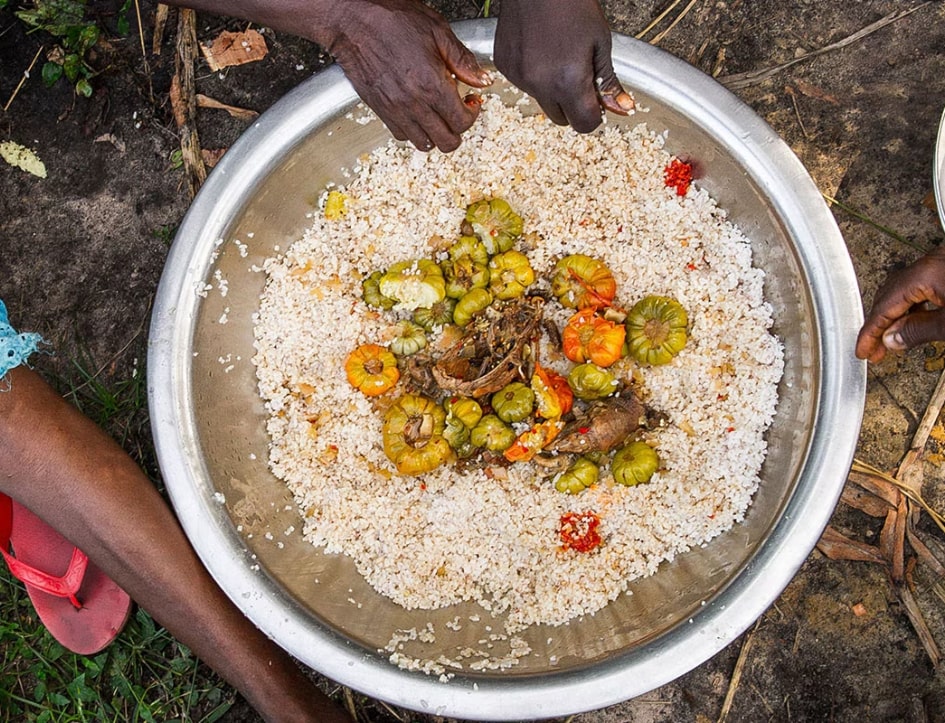
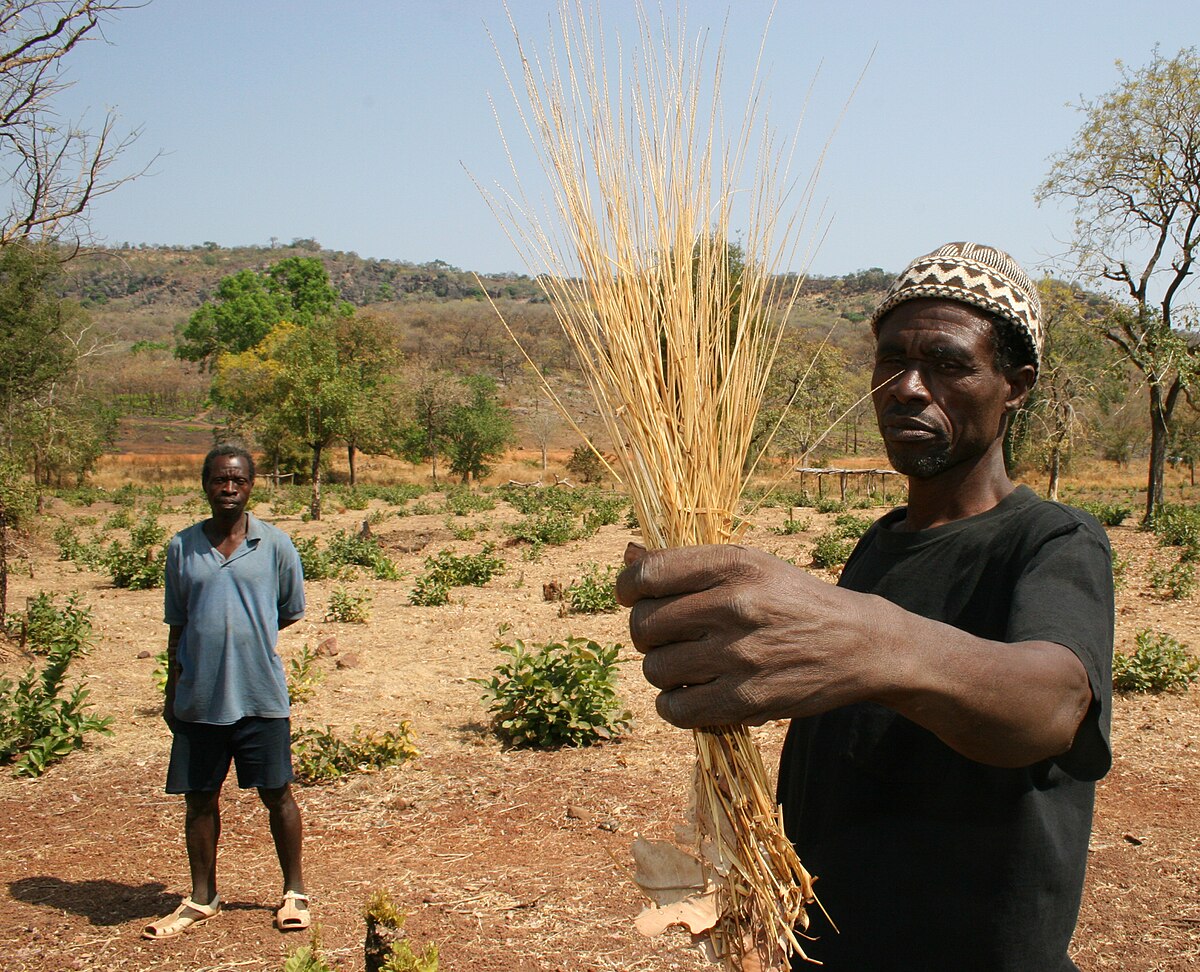
Agriculture
Neglected due to the laboriousness of its cultivation and processing, fonio now represents more than ever an opportunity for agriculture in West Africa. It addresses several major challenges affecting not only the agricultural ecosystem but also the entire socio-economic sphere of the sector.
Resilient Crop
Fonio is a resilient crop that can thrive in challenging environmental conditions such as poor and arid soils, low rainfall, and high temperatures.
Diversification of crops
Cultivating fonio provides farmers with an option to diversify their crops. By adding fonio to their crop rotations, farmers can reduce risks associated with climate variability and diseases affecting other crops.
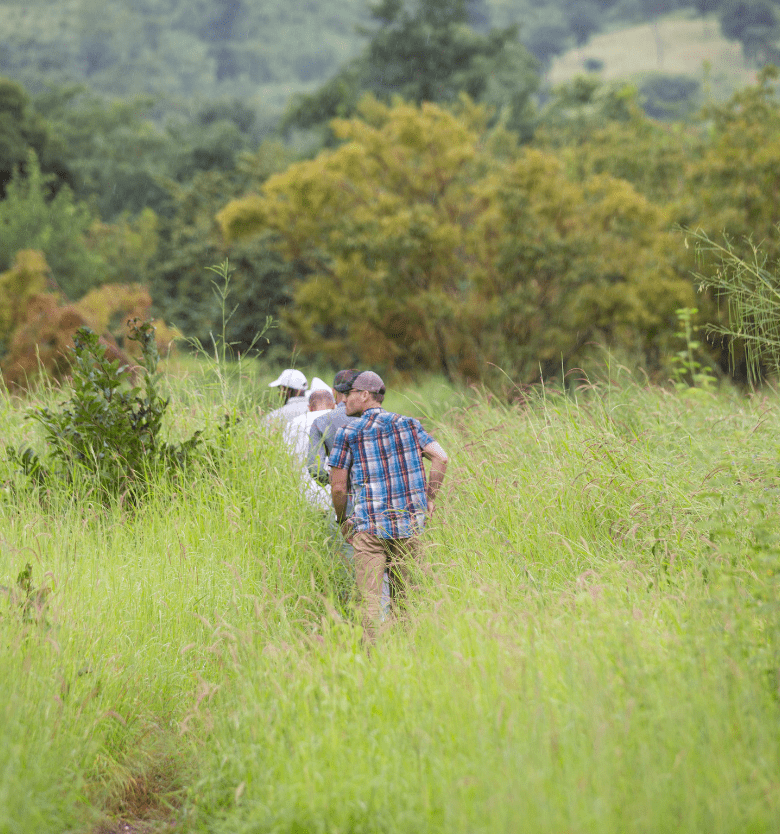
Food Security
Fonio is an important food source for many communities in West Africa. Its cultivation contributes to food security by providing a nutritious and affordable food source.
Economic Opportunities
Cultivating fonio can also provide economic opportunities for farmers, particularly women who make up 50 to 60% of fonio producers. It offers them the chance to grow a high-nutritional-value crop that can be sold in local and international markets.


